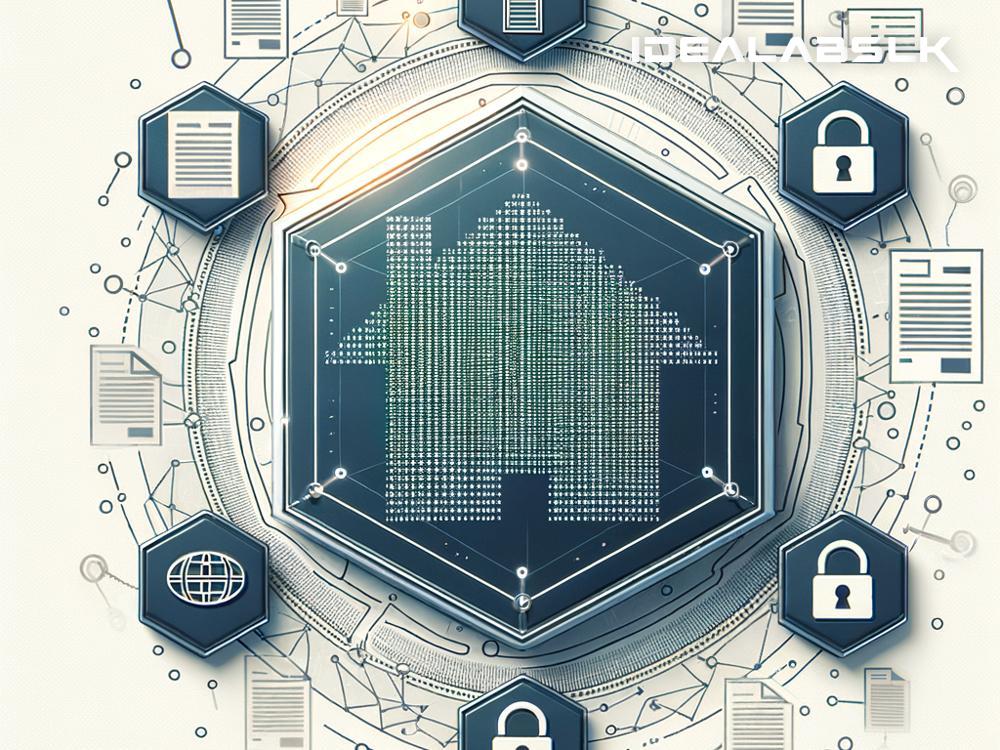Blockchain in Real Estate for Secure Digital Asset Transfers: Simplifying the Complex
The world of real estate is vast, encompassing everything from small plots of land to towering skyscrapers. Traditionally, transactions in this sector have been complex, slow, and fraught with paperwork. But what if I told you there's a technology that could dramatically streamline and secure the process? Enter Blockchain, a term you might have heard in relation to cryptocurrencies like Bitcoin. However, its application goes far beyond just digital money. It's set to revolutionize how we buy and sell real estate by facilitating secure digital asset transfers. Let’s break this down into simpler terms and explore the potential of Blockchain in real estate.
What Is Blockchain?
Imagine a ledger or a record book that's not just held by one person or organization but is distributed across a network of computers. This makes the records it keeps transparent, verifiable, and nearly impossible to tamper with. Each "block" in the chain contains a number of transactions, and once a transaction is entered, it's permanent. It’s like writing something in pen, but in a way that if anyone tried to scribble over it, everyone would notice.
The Challenges in Traditional Real Estate
Before diving into how Blockchain can revolutionize real estate, let's understand the challenges with the current setup:
-
Paperwork and Red Tape: Buying or selling property involves a mountain of paperwork, including contracts, deeds, and titles. This not only makes the process cumbersome but also increases the risk of errors.
-
Middlemen: From real estate agents to lawyers, there are multiple intermediaries involved, each taking a slice of the pie, making transactions costlier and sometimes slower.
-
Fraud: The complexity and lack of transparency can lead to fraud, such as forging documents or scamming buyers and sellers.
-
Liquidity: Real estate is not a liquid asset. It can take months, if not longer, to sell a property and convert it into cash.
How Blockchain Simplifies and Secures Real Estate Transactions
Blockchain can address the above challenges in several compelling ways:
-
Digital Ownership: Through Blockchain, property ownership can be represented as digital tokens, often referred to as Non-Fungible Tokens (NFTs). These are unique digital assets, much like a virtual deed, that prove ownership beyond doubt.
-
Smart Contracts: These are self-executing contracts where the terms are directly written into code and run on the blockchain. So, when conditions are met, the transaction happens automatically without needing human intervention, thereby eliminating the need for many intermediaries.
-
Transparency and Security: Since every transaction is recorded on the blockchain and can be seen by everyone (without revealing personal details), it minimizes the risk of fraud. The decentralized nature of blockchain means it’s not controlled by any one party, making it more secure.
-
Improving Liquidity: By tokenizing real estate assets, property or fractions of it can be traded much like stocks in a company. This could potentially make real estate investments more liquid.
Real-World Applications
Several startups and companies are already exploring blockchain for real estate. For instance:
-
Property Tokenization: Companies are allowing investors to buy tokens representing a fraction of property ownership. This lowers the entry barrier for investors and provides sellers with a larger pool of potential buyers.
-
Land Registries: Some governments are considering blockchain to maintain land registries, reducing the risk of fraudulent land grabs and disputes over land ownership.
-
Rent and Lease Payments: Automating these payments through smart contracts can ensure timely payments, reduce disputes, and eliminate the need for physical checks or bank transfers.
Challenges Ahead
While the potential is immense, there are hurdles:
-
Regulation and Adoption: Real estate is heavily regulated, and for blockchain to become mainstream, regulations need to evolve. Additionally, getting all stakeholders on board is a challenge.
-
Technology Understanding: The success of blockchain in real estate depends on widespread understanding and trust in the technology, which is still in its early stages.
Wrapping It Up
Blockchain in real estate promises to make the buying, selling, and managing of properties more efficient, transparent, and secure. While we're still in the early days, the potential to transform the real estate market is immense. Like any significant technological shift, it will take time, but the foundation is being laid for a future where transactions are smoother, cheaper, and more accessible to everyone. In this rapidly evolving digital age, blockchain could be the key to unlocking a new era of real estate dealings.

